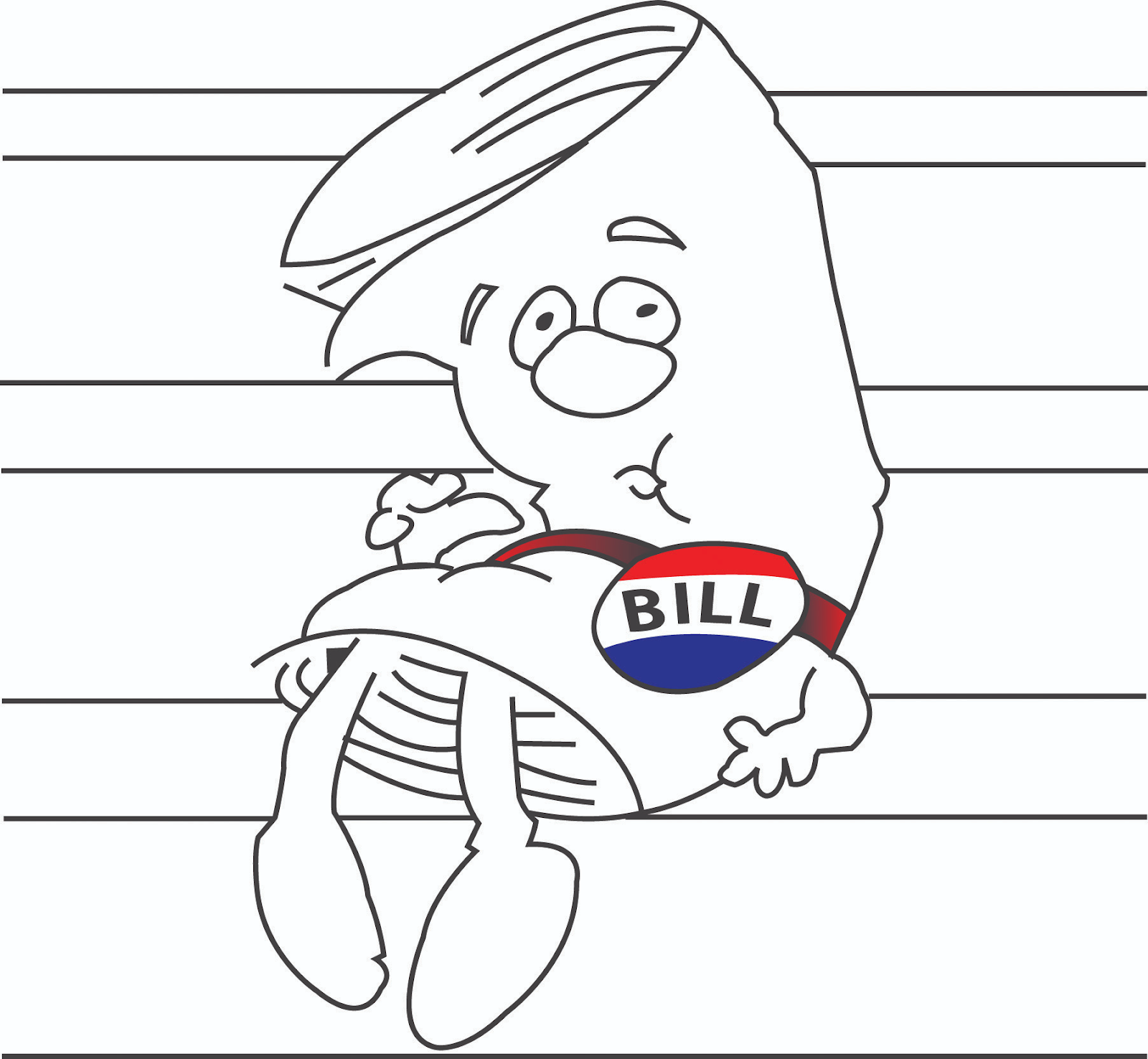Wednesday, October 12, 2022
Ben Carson Wants To Talk To Your Little Patriots
Tuesday, October 11, 2022
ALEC's 2022 Education Goals
The American Legislative Exchange Council (ALEC) is that special group that drives the legislative bus right over any pedestrian notions of how a bill gets to Capitol Hill. And they had some educational ideas for this year. Let's see how things are going.
ALEC is a special collection of legislators and business folks. The "exchange" in the title is a misnomer; mostly ALEC appears about well-placed business leaders getting to tell legislators what they'd like to see enshrined in law. Committees whip up "model legislation" which legislators than carry back to their own state to get passed (Sourcewatch calls it a "corporate bill mill"). ALEC is one reason that from time to time we see remarkably similar laws popping up at the same time all across the country.
So when ALEC says they have some items on their wish list, it's worth paying attention.What did they want from the education sector this year? See if you recognize any of these priorities from a state capital near you. On their list of "essential policy ideas," under "Education and Workforce Development," we find the following:
Academic transparency to enhance parental rights
In fact, they've even got a model American Civics and History Act that would require all social studies instructional materials to be available online for parents to view, require schools to offer US history and government, and forbid anything that might force students to agree with a particular view on controversial subjects (so I guess no more expressing disapproval of kids wearing nazi paraphernalia or confederate flags).
This one seems to be going well for them, with lots of states demanding some version of "no controversial subjects" and requiring both sidesism in class (like that school in Texas where teachers were told they'd better hit both sides of the Holocaust).
Alternative credentialling
This item mentions how the certification process places undue burdens on teachers, which is an odd thing to say, since a person isn't a teacher until they've been certified and hired. But the real concern here is how a certification process can "limit the pool of qualified professionals."
How much better to have a really large pool to choose from, because that would make the cost of such labor cheaper. Hence a whole lot of talk about the teacher shortage and how we can fix it by repeatedly lowering the bar so that any warm body can be put in charge of a classroom. For years, reformsters tried to McDonaldize teaching by pushing teacher-proof curriculum in a box, but recently we seem to have moved past that an on to just saying, "Screw it" and redefining the job requirements so that any human with a pulse qualifies.
Expanding educational freedom
"Education freedom" is a term that tests better with audiences than "vouchers," but that's what they mean. At the opening they were salivating over the impending Carson v. Makin case that, along with the Espinoza decision, would help blast a big fat hole in the wall between church and state. Big enough to drive a bus through, a bus full of money headed for your favorite "religious" school, while simultaneously getting closer to establishing education as a private commodity that you have to go purchase on your own in an unregulated marketplace that, like all marketplaces, offers a hell of a lot more to the rich than to the poor.
And wouldn't you know it-- ALEC has some model Education Savings Account (super-voucher) legislation for your use. Take a look--I guarantee it will look familiar, right down to the clauses guaranteeing "autonomy" for the participating vendors so that they won't have to abide by any of those pesky regulations that the government likes to throw around; they'll be free to discriminate to their hearts' content.
Those are the big three for ALEC this year, and as you can see, it's been going pretty well for the quest to drive the bus right through the public school walls and just dismantle the whole thing. And if the bus in your state looks a lot like the bus in other states, well, now you have an idea why.
Monday, October 10, 2022
High School Theater and Changing Genders
I came across this story over the weekend-- the Central Academy of Technology and Arts in North Carolina has drawn the ire of Moms for Liberty and other reactionary folks by staging a production of Jesus Christ, Superstar in which casting was done without any consideration for gender.
I had several thoughts, including flashing back to my high school days in the early 1970s when Superstar was all the rage and was also stirring up all the rage. The title song was a radio hit and so many pearls were clutched , and then clutched even more when folks discovered that the single had King Herod's Song on the B side, which in retrospect strikes me as some top quality trolling, because taken out of context that song certainly seems a tad blasphemous. I also vividly remember that in the world of church youth ministries, Superstar was greeted with great enthusiasm. The JCS flap was my introduction to that phenomenon in which many people who get all offended on behalf of religion are not actually all that involved in the church.But mostly my thought was that gender flipping of roles in high school theater is not remotely new.
I've been involved in amateur and school theater for ages, and here's the thing. Shows are written with heavily male casts. But in school and community theater, mostly what you get coming out are females. School and community theater are, in some respects, harder on directors than a big Broadway production. In the pros, you can say, "For this part I want an actor who's 5'10" with blue eyes and blonde hair and can dance, act and juggle fire." In the school and amateur world, you get what you get, and you have to figure out how to make a show out of it.
So you do what you have to do. I cannot even count the number of times I've switched role genders. Some don't make the slightest bit of difference--the narrator in Joseph and the Amazing Technicolor Dreamcoat could be anybody, or even a couple of anybodies. And why not older female authority figures, like Mr. Lundie in Brigadoon. I've done Once Upon a Mattress a couple of times; it's a great little show and it has a brace of main characters who can be either gender. It's also a great example of a show that's just more interesting if you mix it up rather than just using a stage full of male characters.
That's part of what you discover when you start casting women in roles originally written for men; it unlocks all sorts of cool stuff. Make Bell's crazy father into her crazy mother in Beauty and the Beast and all sorts of little things shake loose.
I once directed an in-the-park production of Hamlet, costumed to look like a generation story in the sixties, and turned Laertes into Ophelia's older sister, and that creates some really interesting dynamics as well as adding a female character who's not a terrible mess (and don't come at me about "historical accuracy" in a work by William "I giveth not one fig for thy true historie" Shakespeare.
Or a production of The Fantasticks in which the fathers are played by women playing men. Or the gazillion chorus members that have been asked to cross dress. The list goes on and on. Make the changes a few times out of necessity and you start seeing that musical theater's endless tendency to use male characters as a default setting deserves to be challenged and ignored.
That's really at the heart of all our arguments about gender and race in fiction--the long-standing idea that a straight white male is the default setting for all characters and you can have other types of characters only as long as you can make a case for them--but the straight white male is the character that you never have to make a case for. High school theater upends this by making a very simply case--not enough guys came out for this show--but once you've broken the habit, you can start thinking of casts without that default, and it opens a whole world of rich possibilities.
(And that's before we even get to the "straight" default, which is not obvious to the audience, but how many young LGBTQ performers have come up playing straight characters on stage.)
CTA has a famously successful theater program; I suspect their decision had nothing to do with necessity and everything to do with opening up more opportunities and possibilities for their cast and production. I'll also bet dollars to donuts that none of the M4L crew has much experience with high school theater (not even as audience members) because to anyone who spends time in that world, cross casting is not a shocking new surprise. In that respect, necessity pushed high school theater productions ahead of the culture at large. No reason they shouldn't stay there.
Sunday, October 9, 2022
ICYMI: Applefest Edition (10/9)
Foot soldiers for Ron DeSantis: The right-wing money and influence behind Moms for Liberty
Friday, October 7, 2022
One More Misguided Call To End School Boards
At reformy publication Education Next, Henry Smith calls for the elimination of school boards. Smith has been the mayor of a small town (Dover, NH), and an assistant secretary of education under Bill Clinton; currently he's an assistant professor at the Johns Hopkins School of Education. Once upon a time, he interned for a member of Boston City Council.
His takeaway from his experiences is that politicians can be self-aggrandizing and more interested in gaining political power than doing the right thing, and that school board members are often politicians, and therefor do many Naughty Things. And he rattles off some recent scandals, without even getting around to the hijacking of boards by the right-wing anti-public ed crowd. While the recent school board scandals and demagogues echo the old ones, such activities are just a few of the many reasons to call for the elimination of school boards in the 21st century.[F]or parents who want to advocate for their children and the schools’ programs, Parent Teacher Associations offer numerous advantages over school boards. PTAs simply do a better job of giving parents political and social capital within the school system.
Less silly, and perhaps more important, is that Smith's idea cuts a whole vast number of taxpayer stakeholders out of school governance, leaving a critical group paying taxes and having no say. I can't imagine that such a system wouldn't stir up some political battles of its own.
I get it. There isn't a teacher who has taught for more than a week who hasn't felt frustration and/or rage over their local school board and the whole business of being a trained professional who ultimately answers to a batch of elected amateurs.
But a democracy-ish system in which government is run by a bunch of elected amateurs is fundamental to our country's operation. It as, as the saying goes, the very worst system except for every other system. Nor is there any system that cannot be bent to politicized shenanigans if citizens simply stop paying attention and exercising due diligence. I get Smith's frustration, but his solution is no solution at all.
Thursday, October 6, 2022
A No-Cost Gift Schools Can Give To All Students
Slack.
It's been seven years since Robert Putnam published Our Kids, a book that laid out a lot of depressing evidence that the wealthy of this country are, in every way, leaving the poor behind.
One of the things that wealthy families have that poor families do not is what you can think of as either a big web or a large account of social capital. It's a web of connections, the ability to call a guy, the chance to get some slack in a difficult situation. You can think of it as privilege or social capital or simply the power of family reputation.
It shows up in a variety of ways. Some are extra bonuses, like having the right web of connections to get your kid extra help with an area of his or her interest (Little Pat is suddenly interested in widgets, and I know a guy who runs a Junior Widgeteer Club). Some are the chance for a do-over--Pat steals money from the school concession stand, but people decide to give Pat a second chance.
When you're a kid, you learn about slack pretty quickly. I was halfway through high school when I realized that I was coded as a Good Kid and could wander the halls and skirt rules in ways that some of my peers could not.
Some students get slack. They get extra opportunities and extra chances to bounce back from mistakes.
And the thing is, schools can give that kind of slack to everyone. From the classroom to the front office, schools can extend slack to each and every student no matter the circumstance.
Mind you, nobody should get infinite slack. I always told my students that I would trust them until they proved to me that I couldn't, and every year there were a couple who proved to me that I couldn't give them slack.
But you have to start with the slack. Even if you have Heard Things about that kid. Even if you remember How Their Older Sibling Was, or you've lived around the community long enough to know about the Parental Units' various failings.
It's exhausting and wearing to live your life as if you are just one misstep away from disaster and loss. It's hard to fix that in the world at large, but not so hard to fix it inside a school.
That means cutting slack for getting work done, for minor misbehavior, for being surly and uncooperative, for not Getting It yet, for violating some rules. It means not getting pissed at a student for what you imagine they're probably going to do. It doesn't mean a license for assault or otherwise creating an unsafe environment for teachers and other students.
There are many ways in which we cannot give some students the kinds of privileges that come with wealth and station and, well, privilege. But you can treat every single student as if they are from a wealthy, upstanding family.





